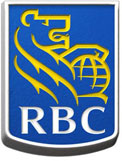| This is how U.S. residents or non-residents can avoid U.S. personconstraints overseas.
This article highlights the benefit of holding a foreign investment account that is structured by means of retirement plan laws that are IRS recognized and specifically mentioned in the Foreign Account Tax Compliance Act (FATCA), Double Tax Treaties (DTA) and Tax Information Exchange Agreements (TIEA). None of these acts, treaties or agreements mentiontrusts (revocable, irrevocable or foreign), life insurance products (including private placement life insurance or private placement variable annuities) nor other structures.
The U.S. Tax system is generally hostile to foreign financial structures if there is a U.S. taxpayer or U.S. beneficiary involved. When going offshore, the IRS wants to know what assets are leaving and why? The hostility is understandable-foreign structures interfere with the government's ability to impose and collect tax. If the IRS considers that if the 'assets'' you have offshore has as its only purpose the reduction of current taxes, they will disallow it. A foreign retirement fund has a registered purpose.
This foreign retirement fund requires reporting on two forms only - FBAR and IRS Form 8938.A US person having passive foreign income must file IRS Form 8621 (PFIC) and/orForm 5471(Foreign Corporation tax form for offshore IBC or LLC). The IRS considers this foreign income to be fully taxable and non-reporting of it tobe tax evasion. Foreign trusts are required to file IRS Form 3520. The IRS wants to know what you are doingand moving assets''offshore''typically provides no U.S. tax advantage. Foreign PPVLI life insurance policies are subject to U.S. person constraints because there is no IRS connected regulator to maintain US tax compliance. Foreign policies are always in jeopardy of an audit because the tax free withdrawal benefit of the non-MEC policy are only available until the extensivenon-MEC rules are broken and then lost forever.
The overseas landscape has walls of obstruction that constrain US Persons
No FATCA compliant foreign financial institution will open an account other than a cash or physical metal storage account for a US person or US person beneficiary (other than a bank of the overseas employer for the employee income). No offshore brokerage will open an account for a US person. Foreign private banks and/orwealth managers will open an account only to receive millions. Since FATCA rules have been enacted, it is not possible for a non-resident USA person to open a bank account in the USA for an LLC, IBC or other business account. Many USA banks and brokerages have written letters to non-resident USA persons asking them to close their accounts.
Eliminating U.S. person constraints and rejection overseas can be best achieved by means of an IRS and internationally recognized 402(b) foreign retirement fund. There are no US person restrictions, walls or rejection because the members segregated investment account is opened by a Regulated, Registered and Recognized Foreign Retirement Plan Fiduciary with the purchasing power of 11 billion USD in member assets. Pension law is recognized in Common, Civil and Sharia law countries and is regulated by government and registered by governance in mutual respect to provide citizens safety, security and survivorship which are all protected by law.
IRC 402(b) is Foreign Account Tax Compliance Act (FATCA) and IRS compliant:
This 402(b) Foreign Government Regulated, Registered, and Recognized Retirement fund is FATCA Compliant. This 402(b) is not subject to FATCA withholding. FBAR is filed at the highest annual value and IRS Form 8938 is filed as ''Zero Value''. The investment account has worldwide access to investments without U.S. Person constraints. Investments registered in foreign countries, which are 2/3rds of the worlds registered investments, are accessible as are U.S. registered investments. All are accessed under the terms of business of a registered foreign retirement fund.
Other foreign financial structures such as partnerships, corporations, IBCs, trusts, estates, funds, non-compliant life and annuity policies, stock in foreign corporationsand any pass thru entities may be subject to enforcement of up to 60% withholding on transfers.
The most consequential part of the FACTA legislation is the severe penalties that the law imposes on foreign financial institutions that are found not to be in compliance with new mandated reporting on financial activity of their U.S. clients. Foreign financial institutions not complying with the rigorous reporting requirements will be subject to a 30% withholding tax on all U.S. sourced payments.
It is important to understand clearly what this implies: any financial institution anywhere in the world not voluntarily complying with FATCA will find that 30% of any U.S. sourced payment (e.g. Microsoft dividend, maturing principal payment from a U.S. corporate or government bond) will be withheld. Because U.S. stocks and bonds are so widely owned globally, virtually all financial institutions everywhere in the world currently receive substantial U.S. sourced payments, mostly on behalf of their clients who have no connection to the U.S. Allowing 30% of these payments to be withheld will not be an acceptable option. Additionally 30% of any funds sent from the USA to a non-compliant financial institution will be withheld by the U.S. financial institution. That means a potential 60% withholding on to and from transfers.
IRC 402(b) is Not a Passive Foreign Investment Company (PFIC)
Partnerships, corporations, IBCs, trusts, estates, funds, non-compliant life and annuity policies, stock in foreign corporations and any pass thru entitieshave income, dividends, interest, gains from sale and/or exchange of investment property (including commodities). The income that the trust derives from its sales of physical bullion is expected to be treated as passive income for this purpose. Since substantially all of atrust's assets will consist of physical bullion and the trust expects to derive substantially all of its income from the sales of physical bullion, it is expected the trust will be treated as a PFIC for each of its taxable years.
There are IRS special tax filing forms required from Passive Foreign Investment Companies (PFIC) which are charged tax at the highest rate on any income from interest, dividend and capital gains realized within the company; foreign IBCs and most trusts can be considered to be a PFIC. The cost of required accounting/record-keeping for reporting PFIC investments can easily run into the thousands of dollars per investment year. Form 8621 (PFIC) must be filed every year for each separate PFIC. Tax filing of a PFIC is extremely complicated and often requires a tax specialist.
Enforcement of the PFIC tax regime on investments held outside the United States by persons subject to U.S. taxation has been lightor non-existent, even though the PFIC tax rules have been around since the 1980s. This is because enforcement relied entirely on self-reporting. Until now, the IRS has had no independent way to verify the nature of offshore investments held by Americans and therefore was severely limited in its ability to enforce PFIC reporting.
The new FATCA law completely changes this since reporting is now required by foreign financial institutions. Any financial asset held by foreign structures (e.g. trusts, corporations) which have US person "beneficial ownership" will need to be reported by the financial institution to the IRS. Clearly, Congress intends one of the effects of the new FATCA law to be enforcement of the PFIC rules.
What About a 402(b) Guarantee
I have heard people respond to our solution that ''this is too good to be true'','' why has my advisor never heard of it'', ''why have I never heard of it'' and ''what about a guarantee''.
It's been around since 1986; the only reason it has become relevant is because with FATCA, the IRS has woken up to the fact that there is a big wide world out there. There are a lot of people who are involved with pension plans these days that back in 1986 when the 402(b) became law, or indeed in 1974 when ERISA arrived, they just wouldn't have dreamt of working or living outside of the USA...it was just not something that people did then but they do now.
The second question ''Why have my advisors never heard of it?'' is that there is no reason for your advisor to have ever heard of it. US advisors do not study this area of law and consequently, do not advise on foreign retirement plan law. However, there are some big international firms that have dealt with these laws for years and can be consulted. Finally, as to a guarantee, it is all laid out for you in the law; you see this in IRS Code, Rulings and Guidelines and also in US Treasury commentary as well as the IRS and Treasury commentaries on FATCA as it is specifically recognized - foreign regulated, registered and recognized retirement plans are exempt.
While you can have a 402(b) foreign plan with a foreign custodian, you can also have a custodian in the USA.
A further benefit is tax deferral is achieved because the contributions as well as the accumulations of income and gains on the contributions, are never vested in the member, not by contract nor by US law. This specific IRC 402(b) is excluded from probate, inheritance and estate tax and has statutory legal asset protection that is not subject to claims, counter-claims, new parties joined, summons, discovery, depositions, interrogatories, nor court judgments.
Conclusion
FATCA has changed the financial and tax environment for Americans working,living, or investing abroad. These changes cannot be ignored. As a result of FATCA, many old and new rules regarding assets held by Americans outside the United States will be enforced to a far great degree than they ever have been before. The IRS, for the first time, will have easy access to information about these assets. The good news is that these changes will prompt many Americans to take steps that address these new concerns.
| 
 Investment Description
Investment Description








 Home Page
Home Page